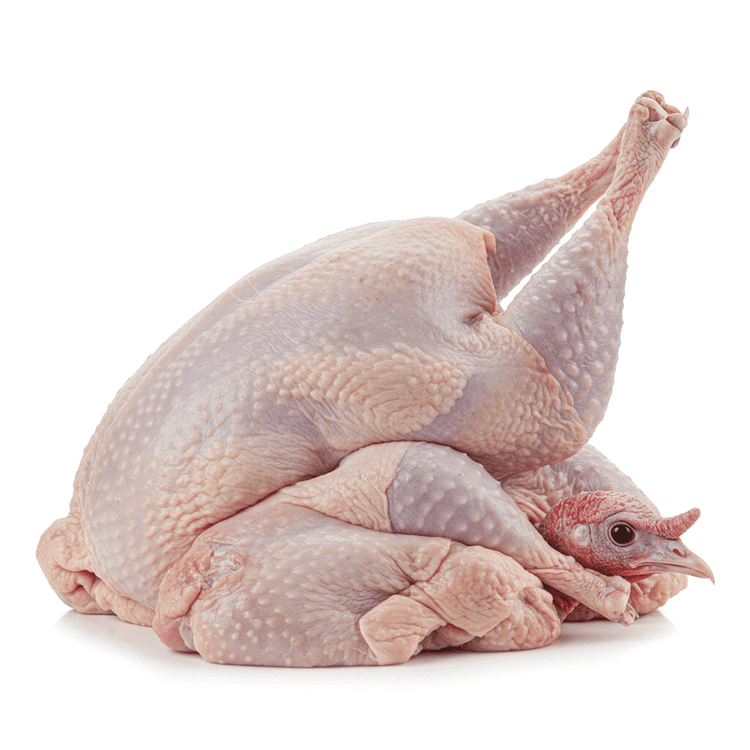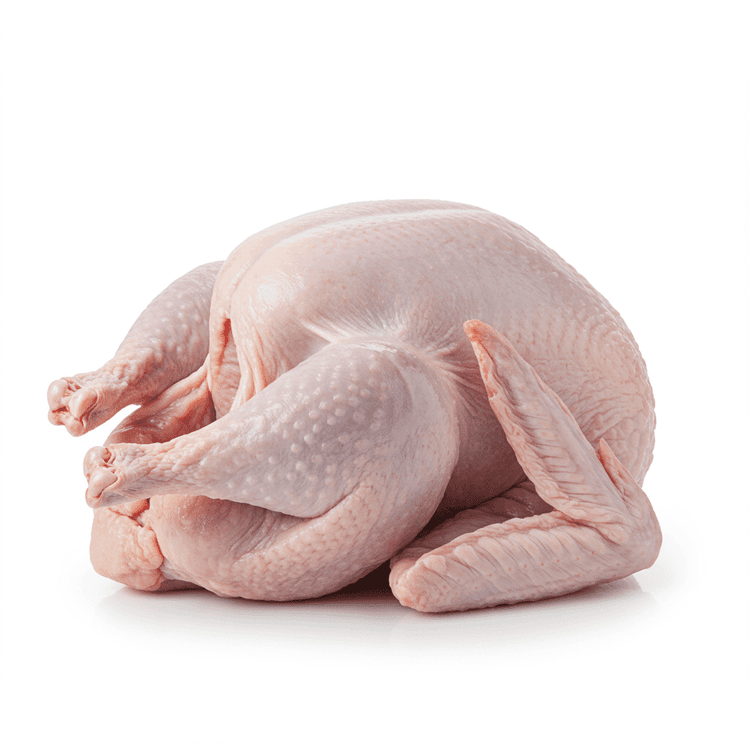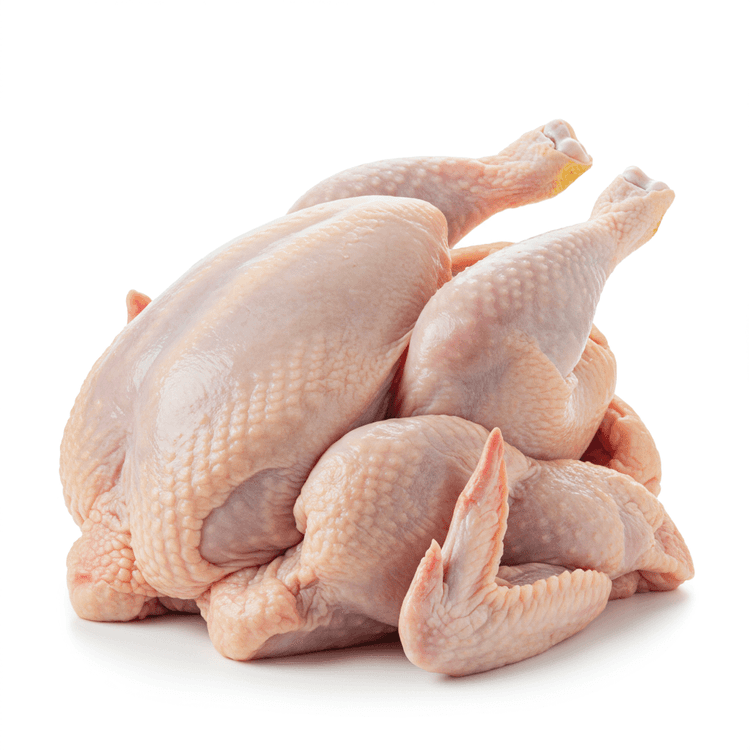
Duck
Duck is a rich, flavorful poultry known for its dark meat and generous layer of fat, which renders beautifully during cooking. The meat boasts a robust, savory taste, often described as gamier than chicken or turkey. Its skin, when properly prepared, becomes incredibly crispy, offering a delightful textural contrast to the tender, succulent meat underneath. Whole ducks typically weigh between 4 and 7 pounds and have a distinctive oval shape. Duck meat is prized for its unique flavor profile and versatility in both classic and contemporary dishes, making it a sought-after ingredient for special occasions and everyday cooking.
Common Uses
- Duck confit is a classic preparation where the duck leg is cured and slowly cooked in its own fat, resulting in incredibly tender meat and flavorful fat that can be used for other dishes.- Roasted duck, often served whole, offers a crispy skin and juicy meat, making it a popular centerpiece for festive meals. It's typically seasoned with herbs, spices, and sometimes fruit for enhanced flavor.- Duck breast, pan-seared or grilled, is a popular choice for a quicker preparation, offering a rich and satisfying meal when cooked to medium-rare.- Duck fat is highly prized for its unique flavor and high smoke point, making it ideal for roasting potatoes, vegetables, or adding richness to sauces and stews.- Ground duck can be used to make flavorful sausages, burgers, or dumplings, offering a unique twist on traditional recipes.- Duck eggs, larger and richer than chicken eggs, can be used in baking or for making pasta dough.
Nutrition (per serving)
Nutrition (per serving)
Calories
404.0kcal (20.2%)
Protein
23.5g (47.02%)
Carbs
0.0g
Sugars
0.0g
Healthy Fat
21.0g
Unhealthy Fat
12.9g
% Daily Value based on a 2000 calorie diet
Nutrition (per serving)
Calories
404.0kcal (20.2%)
Protein
23.5g (47.02%)
Carbs
0.0g
Sugars
0.0g
Healthy Fat
21.0g
Unhealthy Fat
12.9g
% Daily Value based on a 2000 calorie diet
Health Benefits
- Rich in protein, essential for muscle building and repair.
- Excellent source of iron, crucial for energy levels and preventing anemia.
- Contains selenium, an antioxidant that supports immune function.
- Provides B vitamins, important for nerve function and energy metabolism.
- Good source of zinc, vital for immune system and wound healing.
- Offers healthy monounsaturated fats, beneficial for heart health.
Substitutes
Chefadora AI is here.
Experience smarter, stress-free cooking.
Storage Tips
Fresh duck should be stored in the refrigerator, ideally in its original packaging or wrapped tightly in plastic wrap to prevent it from drying out. It's best to use it within 1-2 days. For longer storage, duck can be frozen. Wrap it tightly in freezer-safe wrap or place it in a freezer bag, removing as much air as possible. Frozen duck can last for several months. Thaw frozen duck in the refrigerator before cooking for optimal safety and quality.
Marnirni-apinthi Building, Lot Fourteen,
North Terrace, Adelaide, South Australia, 5000
Australia





